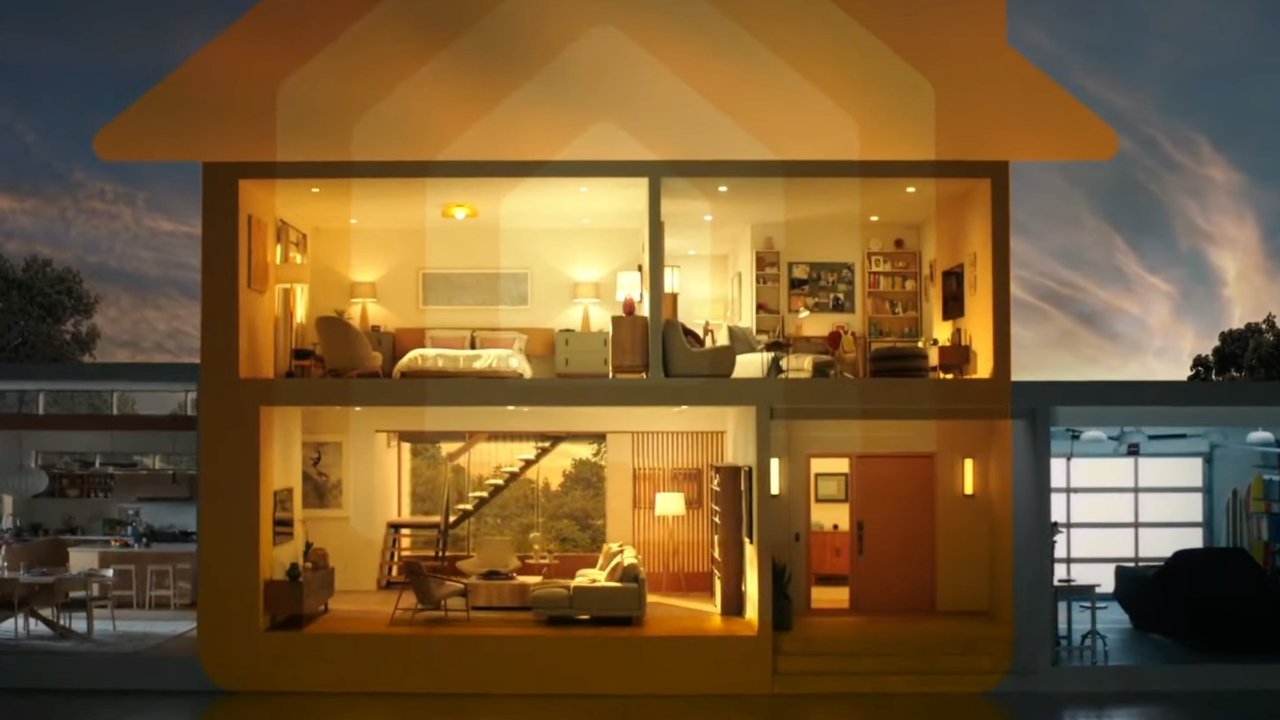The European Union has issued a preliminary report into smarthomes and the Internet of Things, saying that Apple, Google, and others could prove to be anticompetitive.
As the European Commission waits on Apple's response to the charge of breaching EU competition law, it has separately been investigating smart homes. A preliminary report into the Internet of Things concludes that there may be anticompetitive practices from a small number of firms, including Apple.
"When we launched this sector inquiry, we were concerned that there might be a risk of gatekeepers emerging in this sector," said Executive Vice-President Margrethe Vestager, in charge of competition policy, in a statement. "We were worried that they could use their power to harm competition, to the detriment of developing businesses and consumers."
"From the first results published today, it appears that many in the sector share our concerns," she continued. "And fair competition is needed to make the most of the great potential of the Internet of Things for consumers in their daily lives."
The preliminary report does not say that Apple, or others, are in breach of competition laws. It says that other companies have reported that Amazon, Google and "to a slightly lesser extent" Apple, have emerged as the main competitors in the field.
"A large number of respondents, across all consumer IoT segments, point out that the main obstacle to developing new products and services is the lack of ability to compete with Google, Amazon and Apple," says the full report.
"These players have become the leading technology companies," it continues, "and built their own ecosystems within and beyond the consumer IoT sector by combining their own, and integrating third-party, products and services into a branded consumer offering with a large number of users."
Following its initial consultation, the EU is concerned about fostering "interoperability among different brands," which it describes as "important as it allows users to build IoT ecosystems with heterogeneous products, enhancing consumer choice and preventing lock-in into a certain provider's products."
Having solicited responses from companies during the research for the preliminary report, the European Commission has now begun a public consultation. Interested parties have until September 1, 2021, to submit comments.
"This analysis will feed into our future enforcement and regulatory action," said Vesteger, "so we look forward to receiving further feedback from all interested stakeholders in the coming months."
Follow all the details of WWDC 2021 with the comprehensive AppleInsider coverage of the whole week-long event from June 7 through June 11, including details of all the new launches and updates.
Stay on top of all Apple news right from your HomePod. Say, "Hey, Siri, play AppleInsider," and you'll get latest AppleInsider Podcast. Or ask your HomePod mini for "AppleInsider Daily" instead and you'll hear a fast update direct from our news team. And, if you're interested in Apple-centric home automation, say "Hey, Siri, play HomeKit Insider," and you'll be listening to our newest specialized podcast in moments.
 William Gallagher
William Gallagher

-m.jpg)






 Marko Zivkovic
Marko Zivkovic
 Mike Wuerthele
Mike Wuerthele
 Christine McKee
Christine McKee
 Amber Neely
Amber Neely
 Wesley Hilliard
Wesley Hilliard












34 Comments
Gatekeepers like....hmmm...The European Union itself?
Gosh...I have been on Z-Wave and ZigBee products for years and honestly, the lack of deep investment on R&D to improve the shortfalls and expand functionalities to be more holistic matching lifestyles and use-cases of its audience have driven me away from them progressively. 7 years on Fibaro Z-Wave and 5 years on Philips Hue - all the fragmentation, piecemeal and tons of man hours spent to pick up coding and various skills just to make a decent home automation is enough. HomeKit came along in the last few years and slowly but progressively improve and expand with ease of getting started and using shortcuts to easily create automations - is just so much easier for new consumers jumping into home automation.
And these IoT players blame the big tech firms for their failures to invest in R&D, expand its talent pools, etc to compete when they have head-start for years (if not for a decade)? Yet, when they have investors fundings during the beginning years, they spent huge on (somewhat false or never materialise) marketing, nice trips and benefits, paying the top execs handsomely, etc.
And that's anti-competitive behaviour? Wow...this era's leaders and regulators sure amaze me every now and then.
Sorry. Gatekeepers are probably pretty essential here. Can you imagine the issues if every 4th-tier electronics manufacturer or app developer started to offer smart home products with no common standard or protections. At least Amazon and Google have some level of compatibility and standards, even if they don't focus on privacy and security as much as Apple.
Well, Amazon peventing 3rd parties like Sonos from integrating with Drop-In and Voicecalls is a clear anti-competitive behaviour.
And the requirement to have an AppleTV or Homepod in the house in order to use Siri on non-Apple devices (as pointed out in the keynote) is also questionable.
I think government has a role as a referee in these situations and it is hard to deny that the power of a handful of companies on our daily lives is bigger than ever before in history.
They need to be regulated and - above all - taxed in a way that levels the playing field compared to smaller companies and benefits society in the long term…